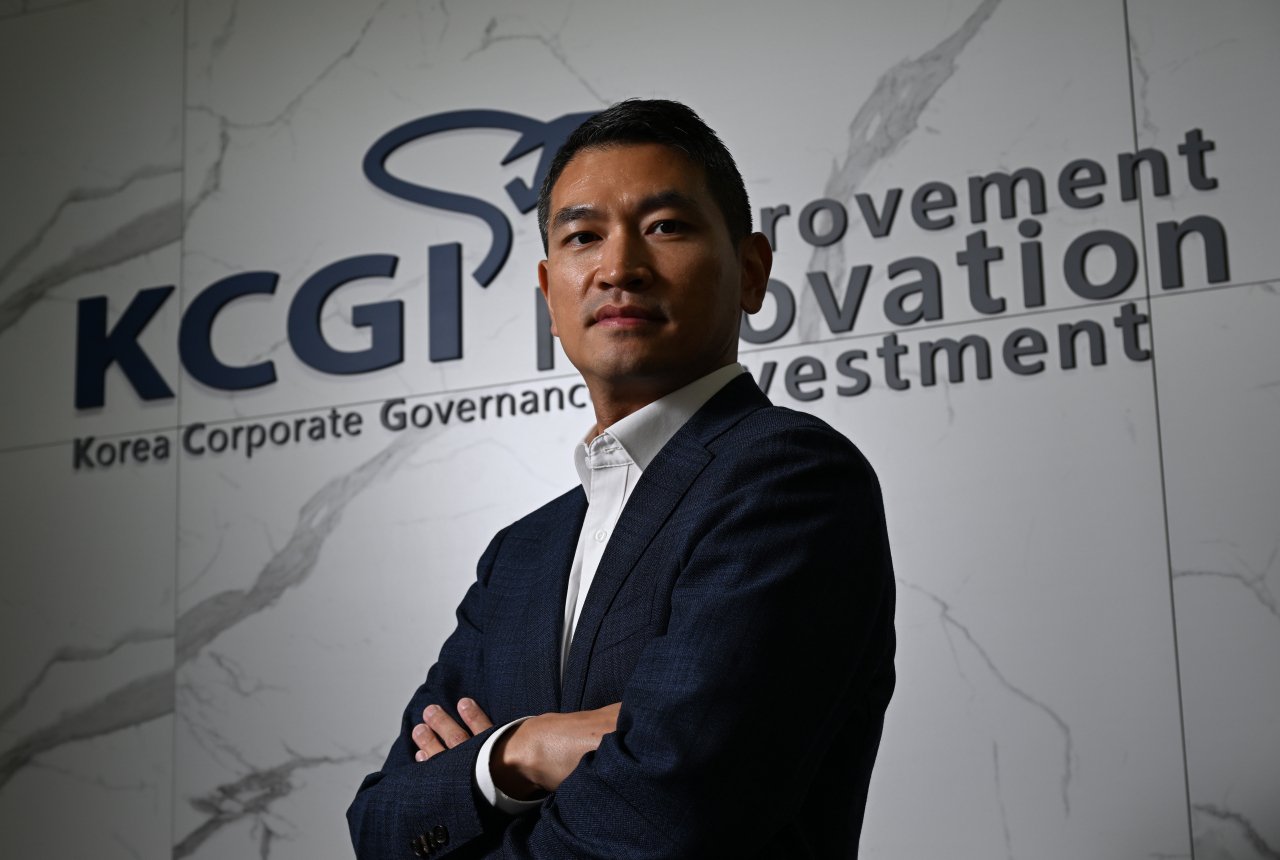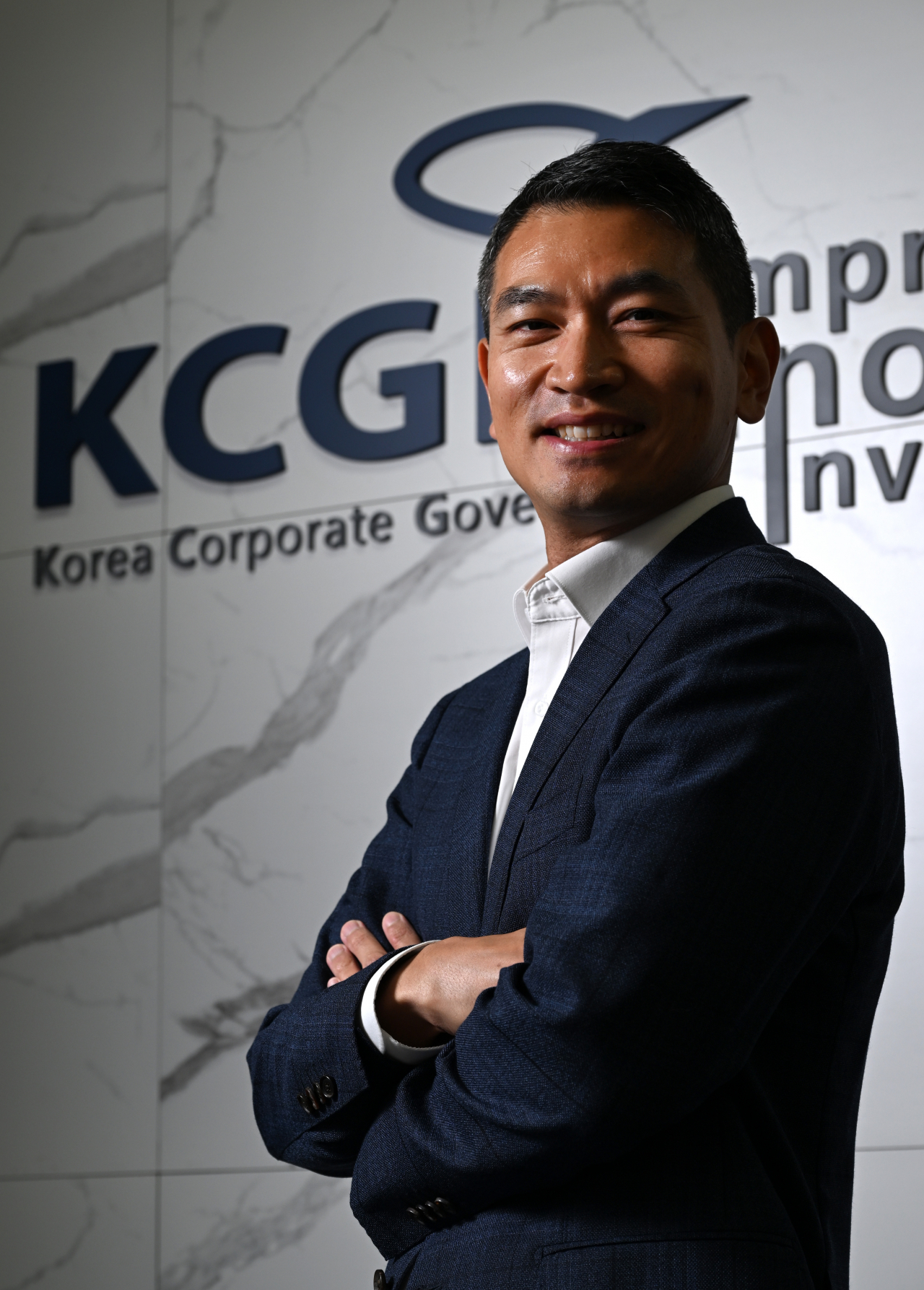
강성부 대표가 이끄는 행동주의 펀드 KCGI가 Korea Corporate Governance Improvement Fund에서 Korea Climate & Governance Improvement Fund로 사명을 변경한다.
영문 이니셜은 그대로이지만 중간에 들어가는 C가 기업을 의미하는 ‘corporate’에서 기후를 의미하는 ‘climate’으로 바뀐다.
임현철 부대표는 최근 코리아헤럴드와의 인터뷰에서 “사명 변경은 메리츠자산운용 인수가 완료된 후 7월쯤 이루어질 것”이라며 “지배 구조 개선뿐만 아니라 기후 변화에 대한 목소리를 내는 행동주의 펀드로 성장하겠다는 의지를 반영하고 있다"라고 설명했다.
그는 “앞으로 기후변화 대응이 매우 중요한 투자 요인이 될 전망이고 자금도 많이 쏠릴 것”이라고 덧붙였다.

〈원문기사〉
[Herald Interview] Korea’s 1st-generation activist fund aims to become corporate savior, not raider
South Korean private equity house Korea Corporate Governance Improvement’s Managing Partner Lim Hyun-chol said the performance of activist funds should not be judged by the time frame of their investments.
“The significance lies not in the length of the investment period but rather in the actual changes brought about in the company after the activist fund's calls,” Lim said during a recent interview with The Korea Herald.
“We see that it is unfair to accuse us of 'meoktui,’” he added.
In Korea, activist funds are often given the nickname meoktui, which roughly translates into “dine and dash” in Korean. This term carries a negative connotation, highlighting the perception that these funds prioritize quick profits rather than the future value of the companies they invest.
KCGI, one of the nation’s first-generation activist funds, also gained this nickname after selling its shares in Osstem Implant, Korea's largest dental implant company, six months after its stake purchase. Its profits are estimated to reach 70 billion won ($54 million).
Last year, KCGI purchased a 6.92 percent stake in Osstem Implant, becoming its third-largest shareholder. Following the purchase, the activist fund immediately urged Chairman Choi Kyoo-ok to resign, saying the company’s outdated governance structure led to its undervaluation in the market.
Under pressure from KCGI’s attack, Cho, who was both the founder and top shareholder of Osstem Implant with a 20.6 percent stake, dumped his 9.16 percent stake, which was acquired by a consortium comprising private equity firms MBK Partners and Unison Capital Korea.
The consortium later announced a tender offer to acquire the firm, and KCGI accepted it in February this year.
Some critics said KCGI’s primary motivation was to pursue quick profits, citing its stake ownership for just six months.
However, Lim refuted this claim. "Due to our open letter, founder Choi felt the pressure and consequently decided to sell his shares, relinquishing his position as the largest shareholder," he said.
He also stressed that Osstem Implant is now run by a group of management specialists, calling it a significant change in corporate governance.
“Our priority for now is improving corporate governance, rather than asking companies to increase dividend payouts that could undermine their fundamental strength,” he added.
Still, he understood why many foreign activist funds have long been associated with the infamous nickname “meoktui funds.”
“It is because they often opt for an approach that solely emphasizes American-style efficiency without considering the unique sentiment and corporate culture of Korean investors. This would also greatly hamper the momentum of an activist fund campaign,” Lim said.
According to him, many foreign-based activist funds request Korean companies to raise dividends or implement cost-cutting measures like reducing the workforce. He said this is why there are few successful investment cases in Korea among them.
Lim admitted KCGI still has a long way to go as it struggles to win enough votes in its proxy battles, especially from institutional investors.
“Institutional investors still hesitate to invest in Korea-based activist funds or engage in their proxy fights,” he said. “I think this impacts the funding size of Korean activist funds, ultimately diminishing their influence.”
As part of efforts to win bigger support from investors, Lim hinted that KCGI will change its corporate name to Korea Climate & Governance Improvement Fund to better reflect its commitment to social values.
“The name change reflects our goal to become a prominent activist fund in Korea that urges actions not just on corporate governance, but also on climate change,” he said. “A substantial amount of funding will be injected into climate change initiatives in the future, with related industries undergoing rapid growth.”
The rebranding process, including a change to its corporate identity, is expected to take place sometime in July.




















